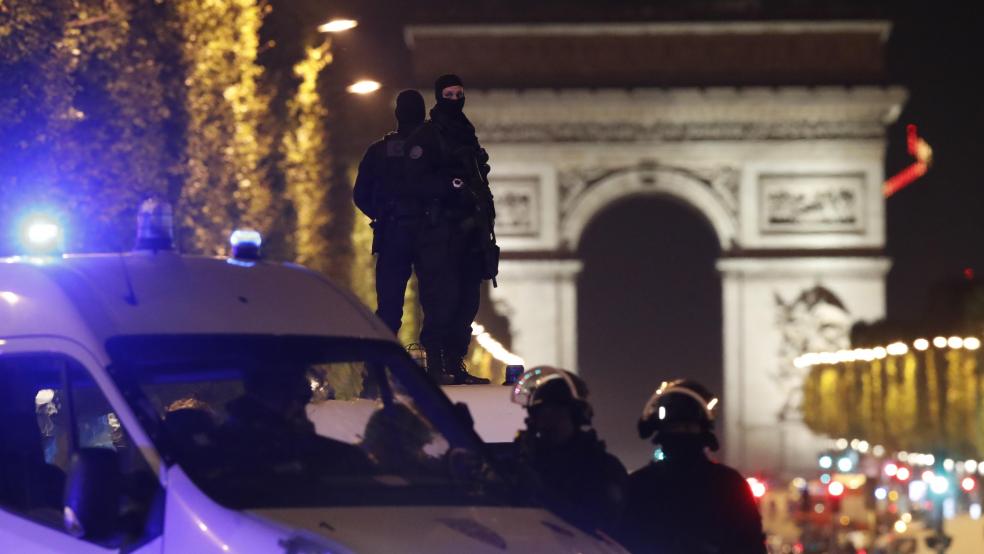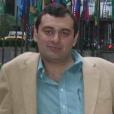The attacks that rocked Paris over the past several days revealed how lax the French law enforcement apparatus was prior to the attacks. The three men involved in the attacks were all well-known to the French police, internal security and intelligence agencies. Yet they managed to meet, plan, equip themselves and execute their attacks in a spectacular way.
Chérif Kouachi, a French-born son of Algerian immigrants, was one of two brothers who attacked the French satirical magazine Charlie Hedbo before being killed on Friday. He was involved in a cell sending fighters from France to join al-Qaeda in Iraq in 2004. In 2005, he was arrested while trying to leave France for Syria, on his way to Iraq, and was sentenced to three years in prison.
Related: Charlie Hebdo: Deadliest Terror Attack in France in Decades
The pressing question is why he was given such a light sentence for his role in the cell’s subversive activities, and why he only served half of his term in prison. He was released after 18 months, but he was not watched carefully and was able to collaborate with his brother and a third attacker to carry out this week’s massacre.
His older brother Saïd, born in 1980, traveled to Yemen to be trained by al-Qaeda, fighting the Huthi Shiite militia there in 2011. How was he permitted passage back to France without detention? If his involvement in al-Qaeda’s activities in Yemen was known to French intelligence, why wasn’t the information passed to the French internal security authorities? If it was, why was he left at large?
The two brothers were questioned about the plotting of a jailbreak to release another convicted terrorist in 2010. But they were not charged for lack of evidence. The third attacker, Amedy Coulibaly, born in 1982 of Senegalese descent, was sentenced to five years in 2013 for that same jailbreak plot. He was released this year after spending four years in prison, including his detention from 2010 to 2013.
Coulibaly also had a domestic criminal record beginning at the age of 17 for theft and drug-related crimes. The same question arises: Why was he allowed to meet, plot and gather arms and explosives to conduct the attacks?
Related: As Americans Muzzle Free Speech, Terrorists Rejoice
“The prevalence of such substantial terror-related activities in the not too distant past of these terrorists is quite concerning, particularly given the degree to which they appear to have been overlooked or under-watched,” said Jacob Kennedy, an intelligence analyst at AIG’s Global Security Operations Center.
When the first shots rang out at the office of Charlie Hebdo, the building was apparently protected by a sole local policeman. “The officer’s execution on a street where no other security presence was to be found exposed a terribly slow response time, suggesting local law enforcement were in no way prepared for an active shooter scenario (much less a coordinated terror attack),” Kennedy said. “More enhanced security measures than one security guard should have been in force.”
France had not seen a terror attack of such scale for two decades, and that might help explain the disappointing French preparation. The surge of the terror threat from ISIS surprised Western intelligence agencies, including the French counter-terrorism service.
“Since the rising Islamic State issued its call to arms, putting it in direct competition with al-Qaeda, France and French nationals around the world have been targeted in the cross hairs. From Algeria to Canada to France, the threat to French nationals in particular has risen steeply in the last few months, far outpacing the nation's counterterrorism stance,” Kennedy said.
Related: The Most Powerful Twitter Reactions to the Charlie Hebdo Massacre
France had succeeded in preventing other recent attacks. The Iraqi intelligence service had warned France several months ago of potential attacks on French soil, and the French authorities acted to arrest several suspects. President Francois Holland said on Wednesday that France had foiled several other terror plots.
But critics have questioned France’s approach to terror groups such as ISIS. France supported the Syrian revolution from its beginning in 2011, and has had ties with several Syrian rebel groups. After ISIS emerged, and several hundred French citizens joined its ranks, France officially signed on to the U.S.-led alliance against the group in August 2014. French intelligence negotiated to free several French hostages from captivity in Syria. Despite France’s formal denials, intelligence experts say that the French government paid ransom to rebel groups in Syria to free hostages over the last few years.
“The French misunderstand their bargain with the devil,” said Veryan Khan, editorial director at Terrorism Research & Analysis Consortium (TRAC). “They pay ransoms and expect return of hostages — not more kidnappings."
France’s alleged capitulation to the ransom demands of terrorists suggest “a lagging and incohesive counterterrorism program,” Kennedy added. “On paper, France's security apparatus is there: city and national police and the elite Research Assistance Intervention Dissuasion (RAID) force. These forces, however, are trained to specialize in hostage situations and counterterrorism operations, both of which ultimately failed on two occasions.”
Instead of amassing 88,000 gendarmes to hunt armed suspects after three days of terror and 17 dead, the French counter-terrorism service should have done a better job of trying to detect and prevent these attacks.
Top Reads from The Fiscal Times:



